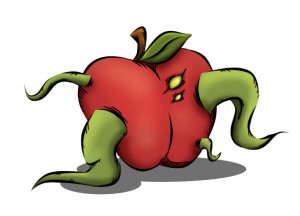
The average college student’s diet may soon be forced to drastically change.
The advent of genetically modified organisms and the health risks associated with them have led some consumers to reconsider how they shop at the grocery store.
College students should follow their lead.

A genetically modified organism, or GMO, is an organism whose genetic material has been altered using genetic engineering techniques.
College student’s have traditionally lived off of foods containing GMOs. Foods like canned soup, frozen foods, sweetened juices i.e., most juices, corn-fed meat and soda all contain GMOs. If dairy cows are corn-fed, not even milk is safe.
If I can’t buy milk without wondering what else is in it, I’m certainly not going to trust a frozen pizza.
There is no current law requiring foods with genetically modified ingredients to be labeled as such for the consumers’ benefit. Proposition 37, a 2012 California ballot measure that would have mandated GMO labeling, was denied by voters.
Companies that create genetically modified seeds, like Monsanto and Syngenta, have deep pockets and political influence, which make it nearly impossible to gain momentum in the fight to label or ban foods.
Last year, Monsanto was sued by at least five farmers, as reported by The Huffington Post. The lawsuits centered around a strain of wheat that was supposed to be resistant to the weed killer Roundup. Foreign buyers shied away from purchasing from these farmers after it was discovered the strain was not approved by the USDA. The U.S. wheat market became severely depressed as a result.
In short, don’t expect to go the juice aisle and see the letters “GMO” on containers anytime soon.
GMOs pose significant health risks. Reports of numerous health problems increased after GMOs were introduced in 1996, according to the Institute for Responsible Technology. The number of Americans with three or more chronic illnesses increased from seven percent to 13 percent in nine years.
The seeds are also resistant to pesticides, so they can be sprayed with pesticides to kill weeds around them without being harmed. This is great for farmers, but increases consumer exposure to pesticides.
In fact, farmers sprayed an extra 383 million pounds of herbicide on GMOs between 1996 and 2008, according to the IRT research. This creates more toxic residue on genetically modified plants.
With no change on the horizon, those that feel strongly about what they put in their bodies have one option: organic food.
Organic foods are the only sure way for consumers to know they aren’t ingesting any genetically modified ingredients. Farmers lose their organic certification if their food contains pesticides or other artificial contaminates.
However, the food is typically more expensive than unlabeled foods because organic farming requires more time and labor.
As a college student, I’ll gladly pay the extra cost to ensure I know everything about the food I’m putting in my body.
I’d rather be completely certain of what I’m eating than save a couple bucks on something that could be harmful.
Everything that we put in our bodies is a choice. Everyone can agree that drinking seven beers on a given night is a bad health decision. Not everyone agrees that eating genetically altered frozen food is a bad health decision. That is what needs to change.
It is time to make a decision on GMOs. The research and arguments against them are only going to get stronger.
I would argue that GMOs are quickly becoming this generation’s cigarettes. We all know how definitively that debate ended. But, there was a time when the health risks of cigarettes were ignored and dismissed, which is where we are with GMOs.
Don’t make the mistake that millions did with tobacco by waiting to see what happens. Do some research and decide now.
Matt Murphy can be reached at [email protected] or @matthewcharlesz on Twitter.













